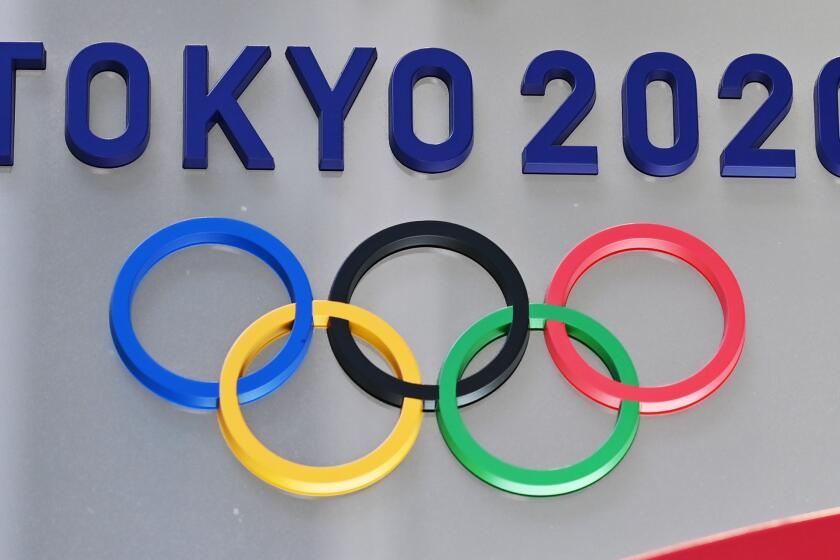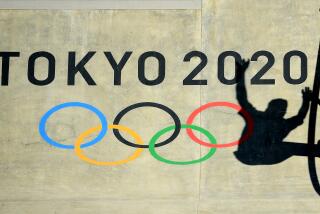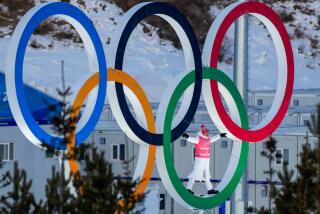Postponing the Olympics over coronavirus would be a complex and daunting task
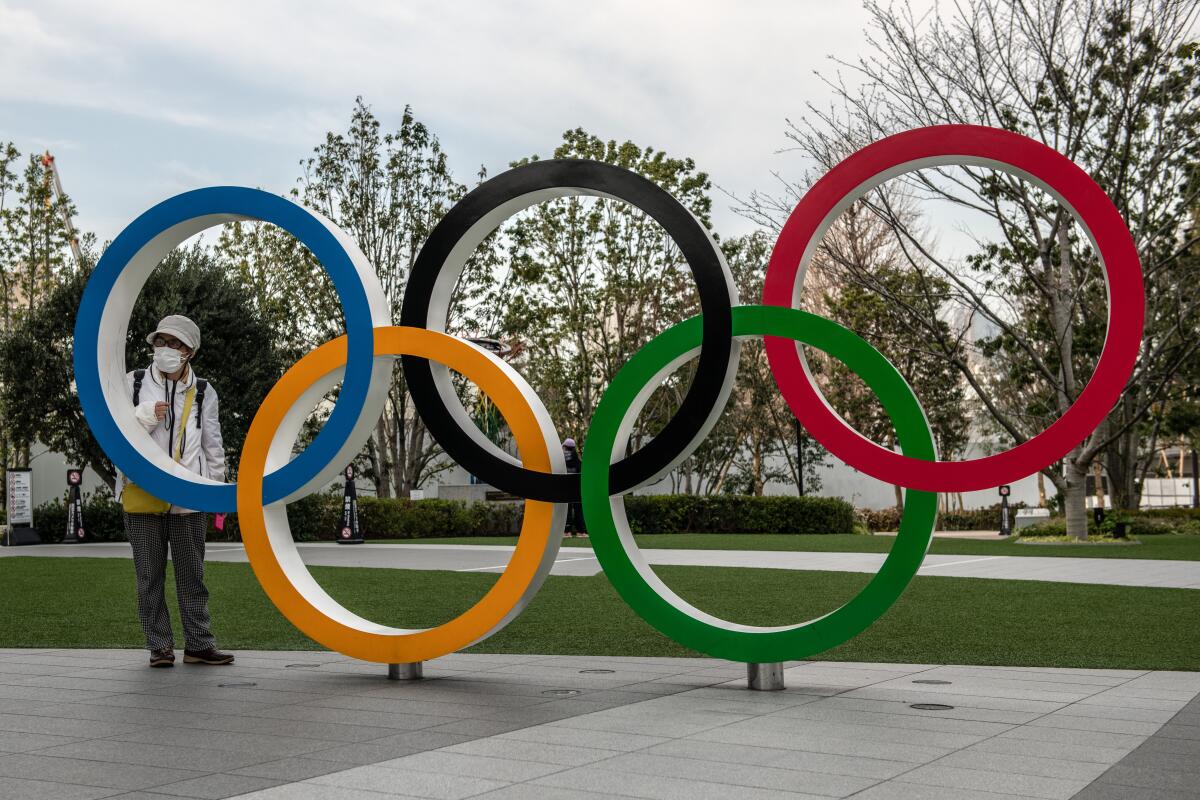
Talk swirling around the 2020 Tokyo Olympics in recent weeks, some people suggesting the coronavirus outbreak will force a postponement, might seem reasonable.
Professional sports leagues around the globe have suspended play. The NCAA canceled March Madness. Even President Trump has weighed in on the fate of the upcoming Summer Games.
“I would say maybe they postpone it for a year,” he told reporters. “I like that better than having empty stadiums all over the place.”
But the response from Olympic leaders and Japanese officials has been adamant, a repeated insistence on forging ahead. At a Saturday news conference, Prime Minister Shinzo Abe said: “We will overcome the spread of the infection and host the Olympics without problem, as planned.”
This reaction underscores two important points: The Games are still more than four months away and, just as significantly, shifting them to another date would be very tricky business.
“This is a global event, the staging of it is massive,” said Mark Dyreson, a sports historian at Penn State. “It’s a really tough decision because it has all sorts of ripple effects.”
Since the modern Olympics began in 1896, they have remained largely immune to outside forces. They were not delayed in the waning days of the 1918 Spanish flu pandemic that killed tens of millions or when the Seine River flooded shortly before the 1924 Paris Games. The Zika virus could not stop them in 2016.
Only the first and second World Wars were big enough to force a cancellation on three occasions, including once in Tokyo.
The contract that host cities must sign gives the International Olympic Committee almost total say over any such actions without a penalty for violating terms.
If the Games were to proceed, there might be a huge obstacle when it comes to deciding who gets to participate because a growing list of international federations and national committees have canceled or postponed qualifying events. Depending on when the virus subsides, there might not be time to pick teams in the traditional manner.
The IOC also has standards – minimum times or scores required to qualify – which might go by the wayside if athletes aren’t given a reasonable chance to compete.
But, for now, most of the focus has been on when, or whether, to hold the Olympics.
When longtime IOC member Dick Pound recently spoke with the Associated Press about a potential change, he suggested that cancellation — as opposed to relocation or postponement — would be the most likely outcome.
“This is the new war and you have to face it,” he said of the coronavirus outbreak, adding that he and his colleagues must ask themselves: “Is this under sufficient control that we can be confident about going to Tokyo or not?”
In the Japanese capital, a government minister faced immediate pushback when she suggested the host-city contract might allow for a short delay, say two or three months.
There was similar reaction last week when the head of the organizing committee called a news conference to chastise one of his board members, who had mentioned the possibility of waiting one or two years.
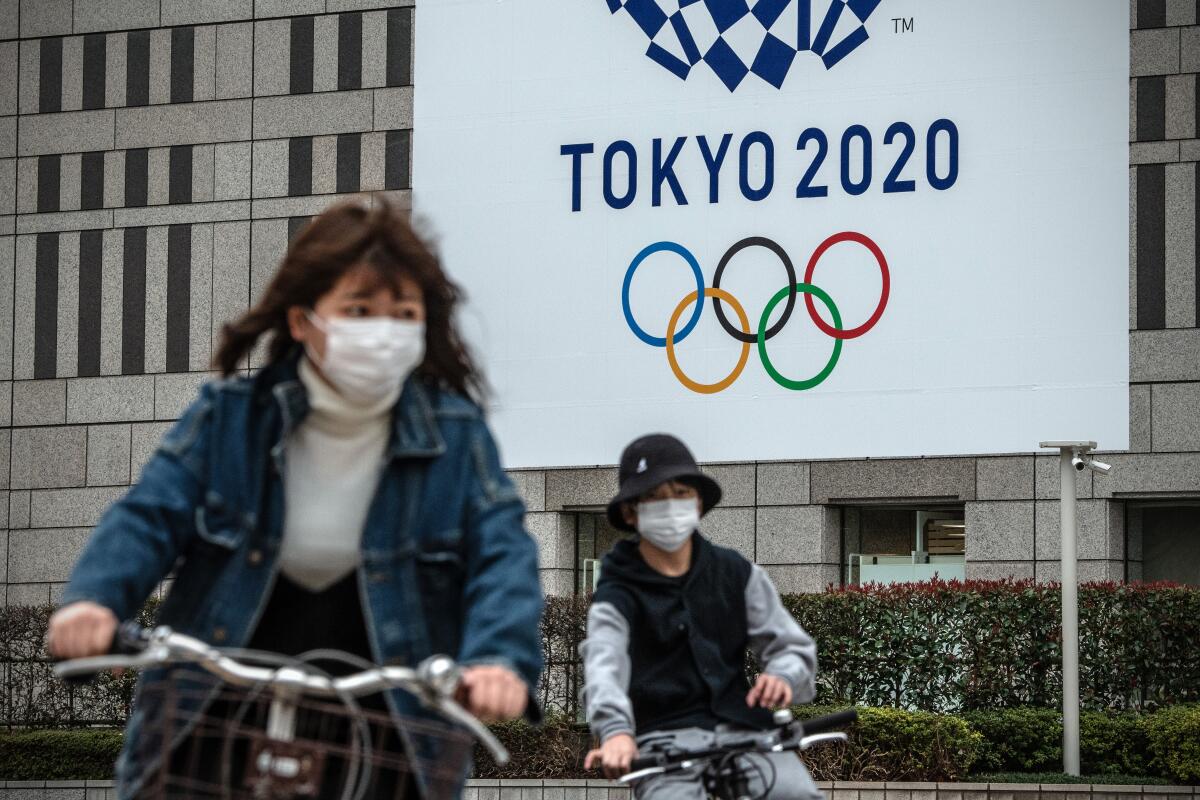
“There is no plan now to change our plans,” Yoshiro Mori told reporters, adding that the board member had apologized.
The biggest problem with a postponement is timing.
There are dozens of international federations that govern each summer sport; many of them step aside for the Olympics but, in other years, hold major world championships.
From badminton to track, these federations have already picked host cities for 2021 and beyond. Venues have been chosen, preparations begun. Television and sponsorship contracts have been signed.
Finding an open date from spring through fall — three weeks that do not intrude on one or more of these competitions — would be difficult. It would be close to impossible in 2022, when the Winter Games in Beijing and the World Cup in Qatar are scheduled to take place.
Another major concern is television.
In the U.S., NBCUniversal has paid billions for broadcast rights. If, as the Japanese minister suggested, the Games were shifted by even a couple of months, they would land in the middle of football season. Globally, foreign networks have other popular sports to think about.
“They want the summer,” Dyreson said. “That’s when there is a lot of broadcast time open.”
Corporate sponsors have planned advertising campaigns and, perhaps, product launches. Even athletes might struggle with a change, which would disrupt their long-range training schedule.
Olympic leaders are planning to hold a series of teleconferences with major sports organizations regarding the coronavirus pandemic.
The situation in Japan is similarly complex.
From an economic standpoint, a cluster of high-rise buildings has been constructed for the athlete’s village; those thousands of units are scheduled to be sold off as expensive condominiums after the Games. Having them sit vacant for a year or more would be costly.
Yet holding the Games this summer could also be problematic if the spread of the virus does not abate. Tokyo could fall well short of expected tourism revenues.
“It’s too close to China and South Korea,” said George Belch, a San Diego State marketing professor and senior associate dean. “I just don’t think you’re going to see as many people willing to go there.”
As deliberations continue, Senators Jerry Moran (R-Kan.) and Richard Blumenthal (D-Conn.) have sent a letter to IOC President Thomas Bach, asking for details about preventing the transmission of coronavirus among athletes and fans at the Games.
The legislators worried that “many questions remain unanswered.”
It is equally unclear how much time the IOC has to assess the situation.
Pound estimates that a final determination could wait until late May, two months before the scheduled July 24 opening ceremony. But over the weekend, fellow IOC member John Coates of Australia said there is no set time frame.
“It’s never been the IOC’s position,” Coates told the Sydney Morning Herald. “It was Dick’s idea. There is four months to go.”
Coates and his colleagues are hoping the situation improves before summer.
“I can see the IOC delaying the decision for as long as possible,” Dyreson said. “Because moving the Games would be such a headache.”
With major sports leagues halting play over the coronavirus, small businesses that count on game-day traffic face difficult economic prospects.
More to Read
Go beyond the scoreboard
Get the latest on L.A.'s teams in the daily Sports Report newsletter.
You may occasionally receive promotional content from the Los Angeles Times.

